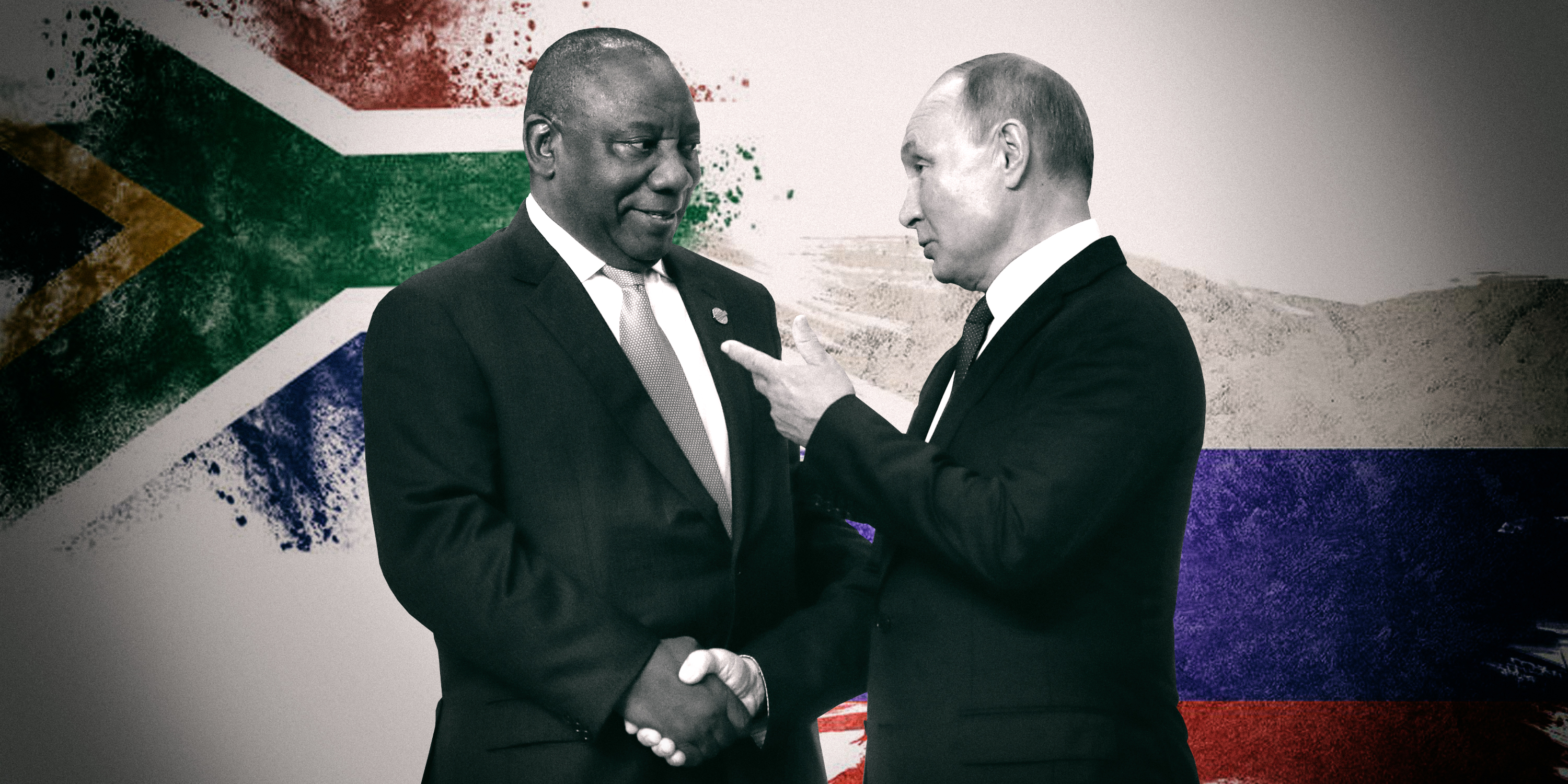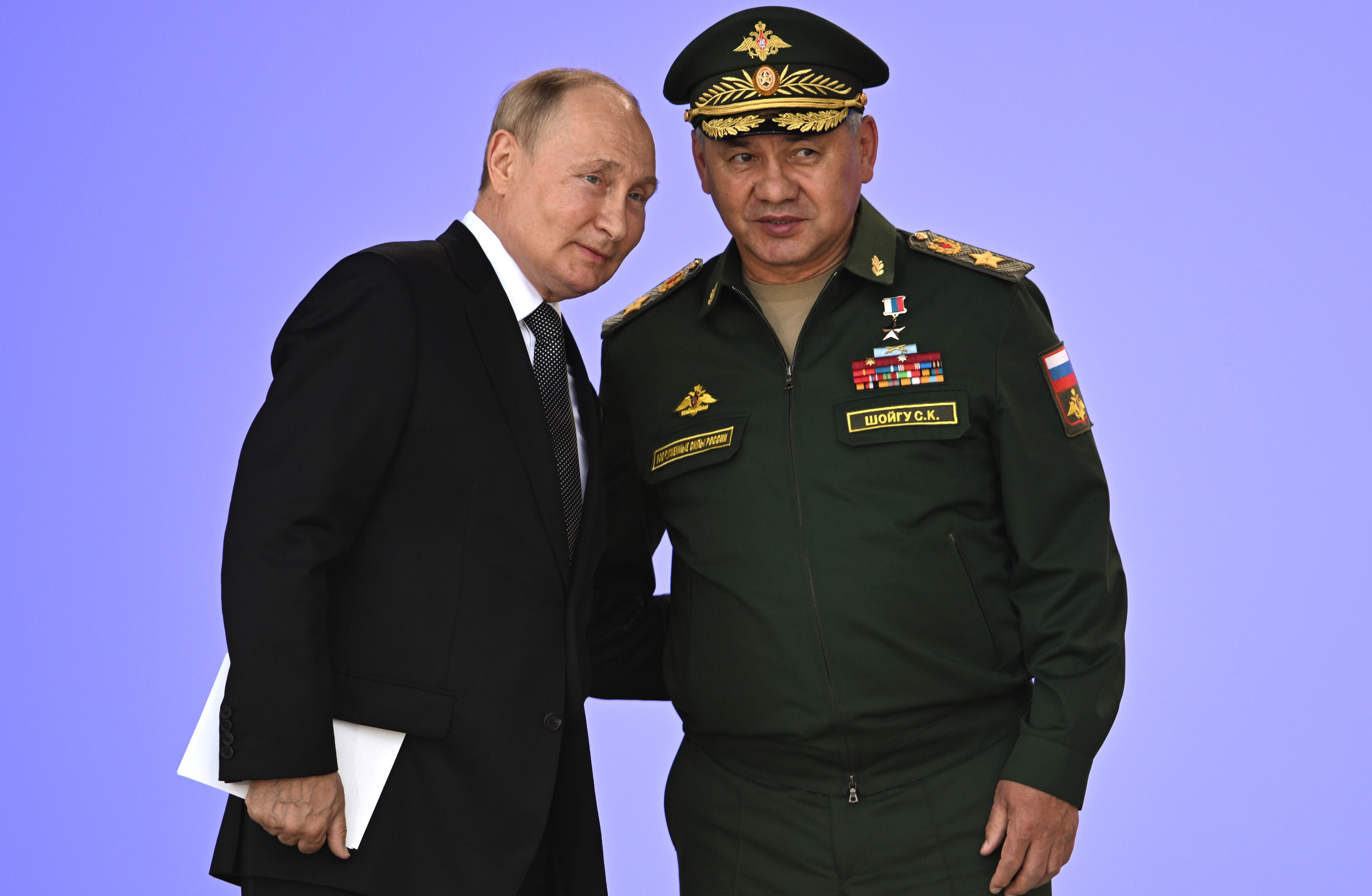Russian Defence Minister Sergei Shoigu said the presence of South Africa and other African states at the 10th Moscow Conference on International Security this week was “visible confirmation” that the US and Nato had failed to isolate Russia because of its war against Ukraine.
Defence Minister Thandi Modise is heading a South African delegation to the conference.
Read more in Daily Maverick: “Flying Circus — Thandi Modise’s shocking trip to Russian security conference”
“It is very encouraging that prominent military commanders from our friendly states — Burundi, Cameroon, Guinea, Mali, Sudan, Uganda, Chad, Ethiopia and the Republic of South Africa — are present in this hall today,” Shoigu said at the conference.
“We appreciate your support and intend to increase cooperation on mutually beneficial projects… Despite attempts of the US and Nato to isolate Russia once again, your participation in the forum is a visible confirmation that these plans have collapsed.”
Read more in Daily Maverick: “Huh? In Moscow, Defence Minister Thandi Modise calls for ‘warmongers’ to be dragged to the ‘table of peace’ ”
Shoigu said African governments and leaders were “holding their own” and pursuing their own agendas of independence, sovereignty, economic development and defence capability in a multipolar world. They were thereby resisting, he implied, the pressure from the West “to return to the order and rules of engagement typical of the colonial period”.
‘Radical change’
This was “a time of radical change in global and regional security. The unconditional dominance of the US and its allies is a thing of the past.
 Russian President Vladimir Putin (right) and South African President Cyril Ramaphosa during an official welcome ceremony for heads of states and governments at the Russia-Africa Summit in the Black Sea resort of Sochi, Russia, 23 October 2019. (Photo: EPA-EFE / Sergei Chiriov / Pool)
Russian President Vladimir Putin (right) and South African President Cyril Ramaphosa during an official welcome ceremony for heads of states and governments at the Russia-Africa Summit in the Black Sea resort of Sochi, Russia, 23 October 2019. (Photo: EPA-EFE / Sergei Chiriov / Pool)
“On February 24, 2022, the start of the special military operation in Ukraine marked the end of the unipolar world. Multipolarity has become a reality. The poles of this world are clearly defined. The main difference between them is that some respect the interests of sovereign states and take into account the cultural and historical particularities of countries and peoples, while others disregard them.”
Shoigu said that in Ukraine, “The Russian military is being confronted by combined Western forces that run the leadership of that country in a hybrid war against Russia.”
Visit Daily Maverick's home page for more news, analysis and investigations
“Nato’s efforts are aimed at prolonging the agony of the Kyiv regime,” he said, but insisted that the goals of Russia’s “special military operation” (its euphemism for the invasion of Ukraine) would nonetheless be achieved and that the West’s plans to strategically and economically weaken Russia were failing.
“The dollar has not reached the ceiling of 200 roubles, as predicted by the US president, the Russian economy has stood firm.” (The current exchange rate is about 60.5 roubles to the dollar.)
Western ‘superweapons’
Shoigu also claimed that “superweapons” which Western countries have begun supplying to Ukraine — such as the US Himars multiple long-range missile system and long-range howitzers — were not having a “significant impact” on the war. However, he added that Russia was studying these “trophy weapons” captured in Ukraine to improve Russia’s counter to them.
“The supply of Nato weapons to Kyiv means that Western countries are responsible for their inhumane use and for the deaths of civilians in Donbas and in the liberated territories.
“Ukrainian armed forces operations are planned in Washington and London. Not only are the coordinates of the targets to be attacked provided by Western intelligence, but the input of this data into weapons systems is conducted under the full control of Western specialists.
“Kyiv’s role in the West’s combat approach has been reduced to supplying manpower, which is seen as expendable. This explains the huge loss of personnel in Ukraine’s armed forces and territorial defence formations.
“So far, the real figures of dead soldiers and mobilised so-called territorial defence forces have been concealed by the Kyiv leadership. In time, however, this information will become public.”
Nuclear and chemical arms
Shoigu dismissed speculation in Western media about Russia’s readiness to use tactical nuclear weapons or chemical weapons in Ukraine as “gibberish” and “lies”.
“From a military point of view, there is no need to use nuclear weapons in Ukraine to achieve its goals. The main purpose of Russian nuclear weapons is to deter a nuclear attack. Their use is limited to extraordinary circumstances as defined in the Russian guideline documents, which are open to public inspection.”
Shoigu also claimed that — unlike the US — Russia had completely destroyed all its chemical weapons, in 2017. He repeated earlier claims that the US had conducted banned military and biological research in Ukraine. He also insisted that Russian military commanders were complying with the Geneva Conventions on humane warfare.
Atrocity accusations
Russian troops have been widely accused of atrocities in Ukraine, including the torture and execution of civilians and the rape of women.
Shoigu rejected Nato’s justification for admitting Sweden and Finland as members, that it was a response to Russia’s invasion of Ukraine. He said the two countries had been cooperating practically with Nato for years.
He repeated Russia’s threat that if Nato deployed strike weapons to Sweden and Finland, this would “change the security environment in the Baltic region and the Arctic and will require a reconsideration of approaches to defence of Russian territory”.
He noted that Russia had already included part of this reconsideration in its updated Maritime Doctrine approved by President Vladimir Putin on 31 July. DM




 Russian President Vladimir Putin (right) and South African President Cyril Ramaphosa during an official welcome ceremony for heads of states and governments at the Russia-Africa Summit in the Black Sea resort of Sochi, Russia, 23 October 2019. (Photo: EPA-EFE / Sergei Chiriov / Pool)
Russian President Vladimir Putin (right) and South African President Cyril Ramaphosa during an official welcome ceremony for heads of states and governments at the Russia-Africa Summit in the Black Sea resort of Sochi, Russia, 23 October 2019. (Photo: EPA-EFE / Sergei Chiriov / Pool) 